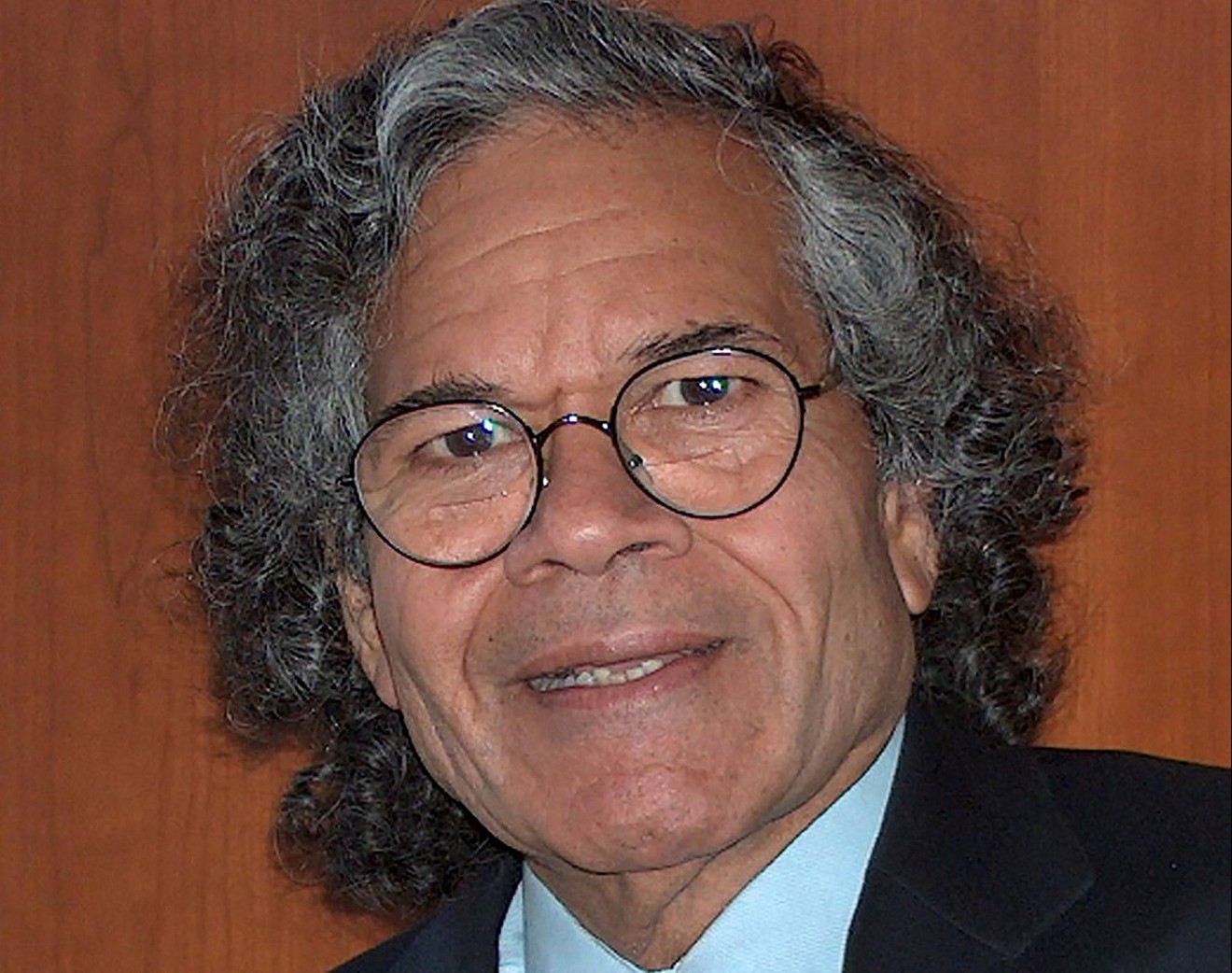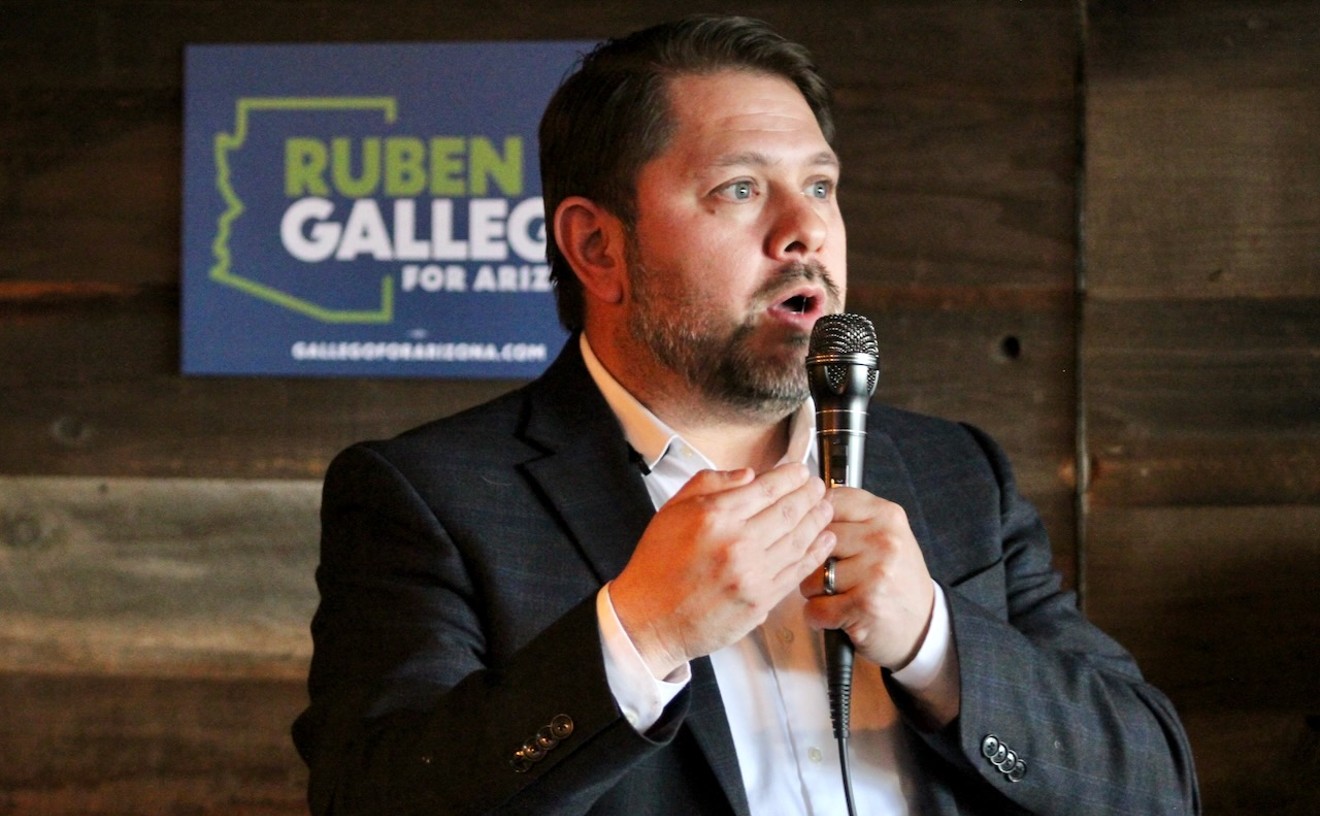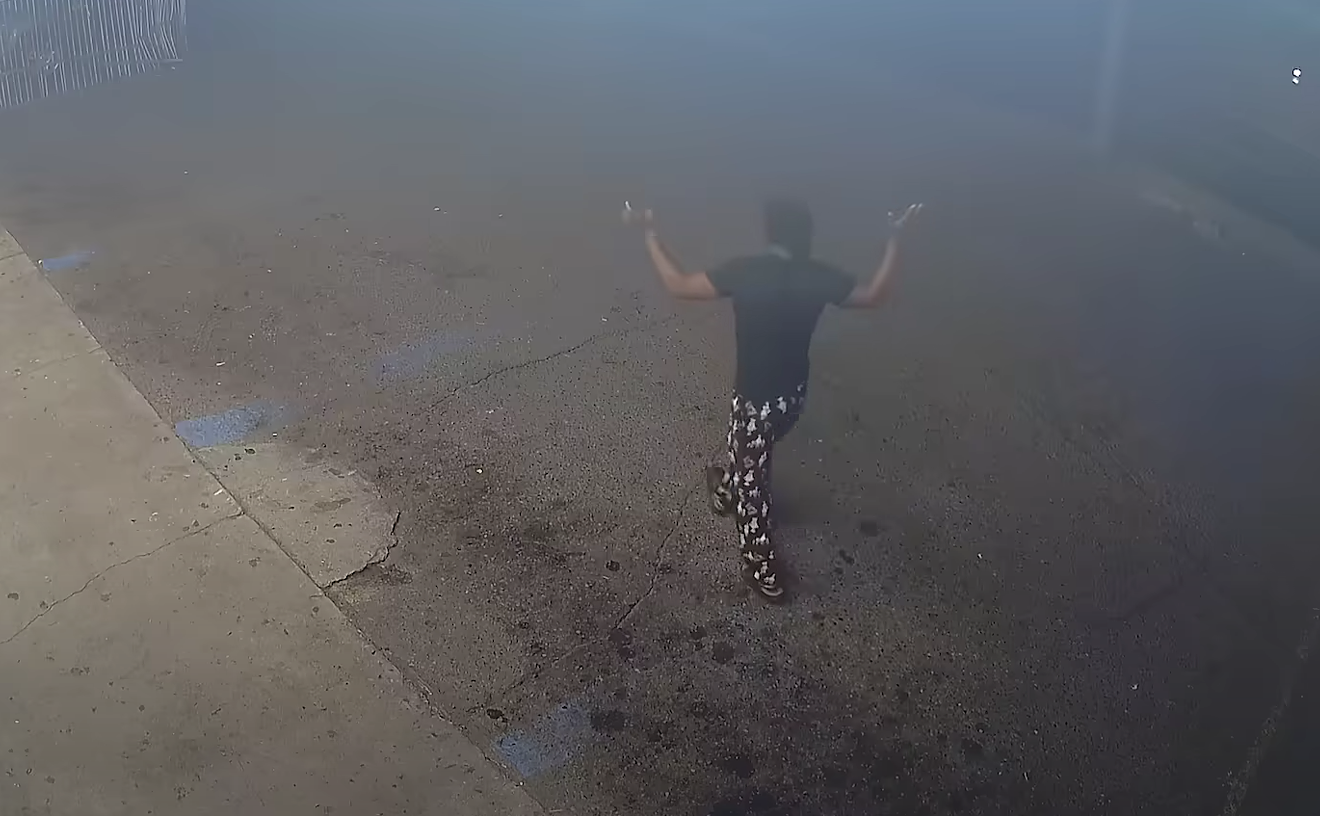(UPDATE: John Kapoor received a sentence of 66 months in prison on January 23.)
Former executives from Chandler-based Insys Therapeutics Inc. were sentenced this week on federal RICO charges as the company files for financial protection.
Michael Babich, the company's former CEO, was the latest: The Scottsdale resident was sentenced to 30 months in prison today. He had pleaded guilty on January 9, 2019, after testifying against the company.
Insys was a major contributor of the opioid crisis sweeping the state and nation. (The Arizona Department of Health Services estimates that an average of more than two Arizonans still die every day from opioid overdose.)
Prosecutors allege Insys executives ran a massive operation to bribe doctors to speak in support of Subsys, the company’s fentanyl spray. Often, these events were misrepresented to attendees, and high-pressure sales were employed. The deceptive sales and marketing practices were attributed with fueling the nation’s opioid crisis as they generated huge profits for the company and its shareholders.
The U.S. Food and Drug Administration estimates that more than 7,500 people died from using Subsys in 2018. More than 800 died from 2012 to 2017, and an estimated 69 died from the spray last year, an FDA report shows.
John Kapoor, the company's billionaire founder, who was arrested in Phoenix in October 2017, was found guilty of racketeering in May 2019 along with four of the company's top executives: Richard Simon, Sunrise Lee, Joseph Rowan, and Michael Gurry.
Initially, the Boston jury also found the defendants violated the Controlled Substances Act. Then in November 2019, an 85-page ruling from Massachusetts U.S. District Judge Allison Burroughs, who oversaw the case, adjusted the jury’s decision.
"The Court only very reluctantly disturbs a jury verdict, but finds it necessary to do so here," Burroughs wrote in her ruling.
She concluded the evidence was insufficient to prove the executives intended the opioid to be prescribed to those who didn’t need it. She did, however, leave the remainder of the jury’s guilty verdict intact.
Gurry, a former Scottsdale resident and the company's ex-vice president of managed markets, was sentenced on January 13 to 33 months in prison.
Executives sentenced this week include Sunrise Lee, sentenced today to a year and a day in prison; Joseph Rowan, who got 27 months in prison; and Richard Simon, who got 33 months.
Kapoor is scheduled to be sentenced on Thursday, January 23.
Katie Conner, spokeswoman for Arizona Attorney General Mark Brnovich, said the criminal case won’t prevent the state from pursuing its 2017 complaint for violations of the Arizona Consumer Fraud Act.
“We are continuing to monitor the federal criminal trial regarding Insys and its top executives,” she confirmed with New Times. “Arizonans can be assured, regardless of what happens in the criminal proceedings, this
office is moving forward with our consumer fraud lawsuit.”
Former Vice President of Sales Alec Burlakoff, who settled with the AG's office in April 2019 after testifying for the prosecution, is also to be sentenced on January 23.
“Back in 2019, we reached a $9.5 million settlement with Alex Burlakoff and we are currently working to collect on that amount,” said Conner of the Arizona AG's office. “This office is dedicated to ensuring that Arizonans receive the restitution they deserve.”
Connor says the state is still actively pursuing collection of this settlement.
Meanwhile, on July 17, 2019, Brnovich’s office amended Arizona’s complaint to include Kapoor, Babich, and Gurry.
The attorney representing the former executives in the RICO case didn’t return messages from New Times.
In September 2000, Insys stock hit an all-time high of $634.91 on the NASDAQ stock exchange, where it
traded under the INSYQ stock symbol.
Kapoor’s wealth peaked at an estimated $3.3 billion in 2015, according to Forbes. His billionaire status made him one of Arizona’s richest men for much of the 2000s. As of December 2018, his wealth was estimated at $875 million, and the collapse of Insys stock, along with piling court costs, is taking its toll on his fortune.
It’s unclear how much money Kapoor, or the company, for that matter, has left to pay creditors. He’s still estimated to own valuable stock options in other companies like pharmaceutical company OptiNose but liquidating his assets could still leave many out in the cold.
January 2020, however, marks the closing chapter of the beleaguered pharmaceutical company, although the story will continue for shareholders and consumers who were the true victims. The company is heading toward insolvency after a turbulent 2010s, but the bankruptcy plan has its critics.
The U.S. Bankruptcy Court for the District of Delaware approved its Chapter 11 filing on January 16, releasing it of liability to its stakeholders. The original filing on June 10, 2019, occurred less than a week after a $225 million settlement was announced by the Justice Department.
Both the Department of Justice and the Securities and Exchange Commission opposed the approval. However, 33 state attorneys general, including Arizona's AG, Mark Brnovich, and others approved of the plan. Delaware Bankruptcy Judge Kevin Gross agreed with them and green-lighted the plan.
Of the money to be eventually recovered in the bankruptcy plan, the largest share will be allotted to states, municipalities, and tribes, Conner said.
“The bankruptcy agreement does not impact our ability to pursue claims against the executives named
in our consumer fraud Lawsuit,” Conner said.
Arizona U.S. District Judge Neil Wake is ruling over a separate class-action lawsuit for securities fraud filed by Richard Di Donato against Insys in 2016, which is still ongoing. As of October 2019, investors were cleared to proceed with claims.
Insys previously worked to sell its stake in its Subsys painkiller but found no buyers. It also introduced Syndros, a medication based on the synthetic cannabinoid Dronabinol.
In a move viewed cynically by many observers, Insys donated $500,000 to Arizonans for Responsible Drug Policy to oppose 2016’s proposed recreational cannabis legalization initiative. The ballot measure, Proposition 205, lost with 51.32 percent of voters in opposition that year.

Audio By Carbonatix
[
{
"name": "Air - MediumRectangle - Inline Content - Mobile Display Size",
"component": "18478561",
"insertPoint": "2",
"requiredCountToDisplay": "2",
"watchElement": ".fdn-content-body",
"astAdList": [
{
"adType": "rectangle",
"displayTargets": "mobile"
}
]
},{
"name": "Editor Picks",
"component": "16759093",
"insertPoint": "4",
"requiredCountToDisplay": "1",
"watchElement": ".fdn-content-body",
"astAdList": [
{
"adType": "rectangle",
"displayTargets": "desktop|tablet"
},{
"adType": "rectangle",
"displayTargets": "desktop|tablet|mobile"
}
]
},{
"name": "Inline Links",
"component": "17980324",
"insertPoint": "8th",
"startingPoint": 8,
"requiredCountToDisplay": "7",
"maxInsertions": 25
},{
"name": "Air - MediumRectangle - Combo - Inline Content",
"component": "16759092",
"insertPoint": "8th",
"startingPoint": 8,
"requiredCountToDisplay": "7",
"maxInsertions": 25,
"watchElement": ".fdn-content-body",
"astAdList": [
{
"adType": "rectangle",
"displayTargets": "desktop|tablet"
},{
"adType": "rectangle",
"displayTargets": "desktop|tablet|mobile"
}
]
},{
"name": "Inline Links",
"component": "17980324",
"insertPoint": "8th",
"startingPoint": 12,
"requiredCountToDisplay": "11",
"maxInsertions": 24
},{
"name": "Air - Leaderboard Tower - Combo - Inline Content",
"component": "16759094",
"insertPoint": "8th",
"startingPoint": 12,
"requiredCountToDisplay": "11",
"maxInsertions": 24,
"watchElement": ".fdn-content-body",
"astAdList": [
{
"adType": "leaderboardInlineContent",
"displayTargets": "desktop|tablet"
},{
"adType": "tower",
"displayTargets": "mobile"
}
]
}
]











